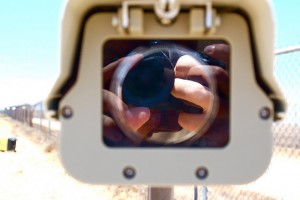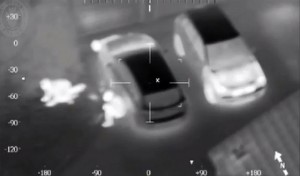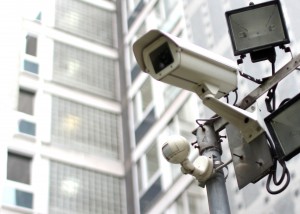For those who own alarm systems, whether they are video surveillance, access control, burglary, or fire protection, our systems watch over us and protect us around the clock.
But in today’s day and age, just about everything is connected to the internet. In many cases, this includes our alarm system. And like any device that is connected to the internet, if not taken care of properly, it can be at risk of attack from hackers. With the upcoming launch of 5G, it is extremely important this year to protect anything connected to your home network to prevent these cyber attacks.
“Attackers used an army of hijacked security cameras and video recorders to launch several massive internet attacks” said a news piece by the Wall Street Journal. Many times, these cameras were infected by pre-compromised routers that already existed.
Here are some tips about how to protect your alarm system as well
Router security: We recommend using WPA2 security for your router. Most routers, unless they are fairly old, are capable of this type of security. For more information on this, check out your router’s brand’s website – Belkin, Linksys, and Netgear are common brands.
Firmware updates: It is very important that any device that connects to the internet, from thermostats to alarm systems to routers to televisions to computers, always has the most up to date firmware. Each device’s manual or website will have instructions on how to do those, and if there is a phone application that interfaces with the device, you can often do it through the application.
Password protection: Many devices come with generic user names and passwords. These are easy targets for hackers. Make sure you change any default passwords, and try not to use the same password on multiple devices. It is most important that this is done on the router.
New hardware: According to Kenneth White, a security researcher and director of the Open Crypto Audit Project, “If the company that made your [device] isn’t selling that model anymore or offering security updates, that’s a good sign for you to throw it in the trash.”

 When it comes to security systems you may have heard the term “edge technology,” “edge analytics,” or “edge devices.” What exactly do these terms mean and why are they important? When talking about security systems “the edge” is typically used when referring to video surveillance components. Every security system integrator and industry professional will likely have their own definition of what it means, but in summary “edge technology” refers to surveillance devices that operate, analyze, and record at their source versus transmitting all that information over a network to the system’s core. In traditional surveillance systems there is a central server where recorded data from peripheral devices is stored and analyzed. In an edge-based system cameras perform these functions locally.
When it comes to security systems you may have heard the term “edge technology,” “edge analytics,” or “edge devices.” What exactly do these terms mean and why are they important? When talking about security systems “the edge” is typically used when referring to video surveillance components. Every security system integrator and industry professional will likely have their own definition of what it means, but in summary “edge technology” refers to surveillance devices that operate, analyze, and record at their source versus transmitting all that information over a network to the system’s core. In traditional surveillance systems there is a central server where recorded data from peripheral devices is stored and analyzed. In an edge-based system cameras perform these functions locally. Not all surveillance cameras are created equally. It may seem as simple as selecting a surveillance camera and popping it into place, but what about the external factors that affect the quality of recorded images? One of the top concerns for industry professionals and end-users alike is a cameras ability to see in the dark or varied light conditions. Whether you’re using interior or external cameras, their ability to function under varied light conditions is paramount. Our experts at
Not all surveillance cameras are created equally. It may seem as simple as selecting a surveillance camera and popping it into place, but what about the external factors that affect the quality of recorded images? One of the top concerns for industry professionals and end-users alike is a cameras ability to see in the dark or varied light conditions. Whether you’re using interior or external cameras, their ability to function under varied light conditions is paramount. Our experts at 
 In an unpredictable world, one thing is certain, we all want to protect what’s ours. Whether you’re a business owner or a homeowner, you want to keep safe that which you’ve worked so hard for. One of the most effective ways to do that is to install a security system. Well, what exactly is a security system and what makes it a complete security system?
In an unpredictable world, one thing is certain, we all want to protect what’s ours. Whether you’re a business owner or a homeowner, you want to keep safe that which you’ve worked so hard for. One of the most effective ways to do that is to install a security system. Well, what exactly is a security system and what makes it a complete security system? 
 Does your security system, or part of it, rely on your company’s internet network? Or are you considering a system that is at least partially dependent on network connectivity? If so, what happens if that network fails or is compromised? Fortunately nowadays the chances of your network dropping or losing connection is pretty slim, in fact the probability of most Internet Service Providers (ISPs) experiencing an outage is about
Does your security system, or part of it, rely on your company’s internet network? Or are you considering a system that is at least partially dependent on network connectivity? If so, what happens if that network fails or is compromised? Fortunately nowadays the chances of your network dropping or losing connection is pretty slim, in fact the probability of most Internet Service Providers (ISPs) experiencing an outage is about 
